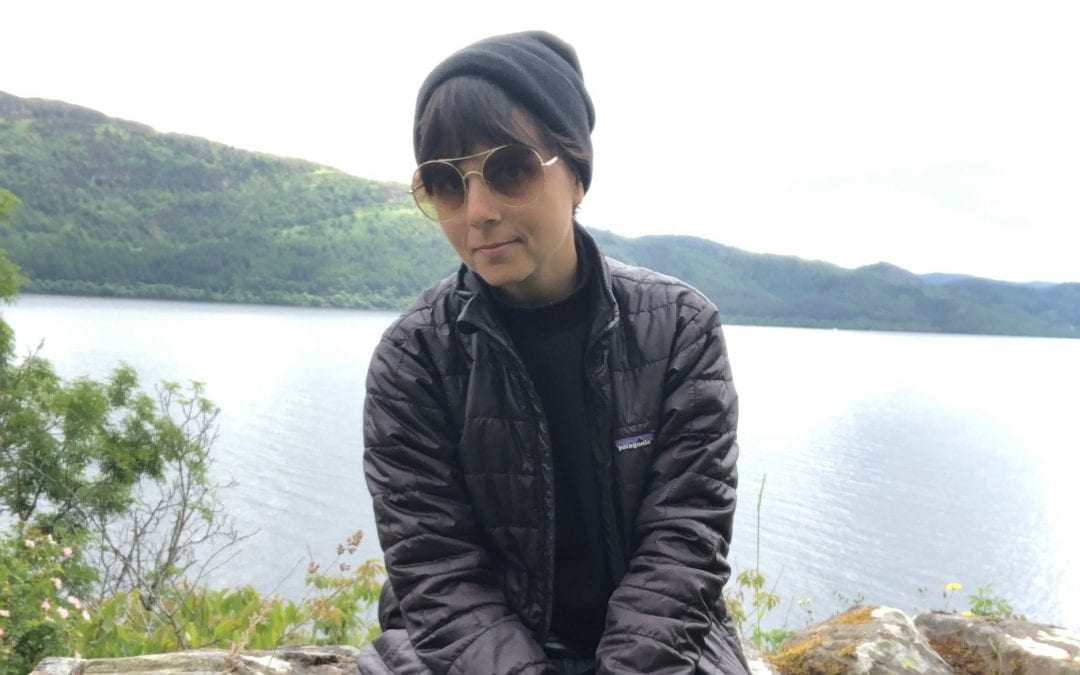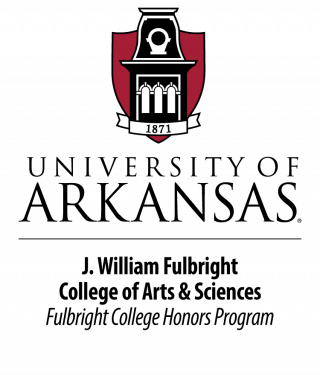Interview conducted by Sammi Mason
Ren Pepitone is an Assistant Professor of History. She is currently revising a book manuscript, Brotherhood of Barristers: Gender, Space, and the British Legal Profession, 1840-1940. This work explores entrenched masculine subcultures, the uses of the past, and the longevity of conservatism in British legal institutions. She joined the University of Arkansas in fall of 2016. Her article on women’s struggle for the right to practice as barristers appeared in the Journal of Women’s History and she has a forthcoming chapter on masculinity and the bar in the edited volume Precarious Professionals.
The comments in this piece were edited for length and clarity.
What is your primary area of research?
I work on modern Britain—that’s my geographic focus, Britain and its empire—and then I focus on masculinities in professional culture. I particularly look at the legal profession and legal training in Britain in the nineteenth and twentieth century. I think about the way the profession used particular ideas of “gentlemanliness” to moderate who could or could not become a lawyer. So, even though the profession was not necessarily creating formal barriers or specific rules regarding gentlemanliness, it was conflating ideas of gentlemanliness with the culture of the bar in a way that kept people of certain class backgrounds and people of certain races marginal to the profession. And, also, it did have formal rules that prohibited women from joining.
So overall the project looks at cultures of inclusion and exclusion, with masculinity as a central focus.
That’s really interesting. How did you come across that topic?
As an undergraduate I had to write a senior thesis, and I wrote it on a case study of an inter-class couple. I was interested—and still am—in the history of sexuality. By the end of that project, I had realized a lot of the work that I thought should be done on that case study had actually been done. But there was this really rich source-base that the man in the couple had kept—extensive diaries—that spoke to his personal life, but also his social and professional life. So, I started to think about a social geography of this person where he was living.
The legal profession in Britain is a little bit unusual in that it’s really centralized. To become a lawyer anywhere in Britain or its empire you have to go and train at these institutions in central London, so it has this centripetal effect. Even if you are in Mumbai and you want to practice in Mumbai, you still have to go London. By looking initially at this one diary, I started thinking about “wait a second, this space is really unusual, what’s happening here?” And I realized that I wasn’t just interested in the social geography of this one individual, I was actually interested sociability and the legal profession, so that’s how the project sort of opened up and became something…I cover a hundred years in my chronology and I’m looking at England and it’s empire, so it got a lot broader.
Switching from your research to your pedagogy, what is your favorite thing to teach? It can be a book, class, subject…
It’s a difficult question because I have many answers. This fall I taught a class, LGBTQ+ Histories, and had a really fun time teaching that because the topic is close to my heart—as I said, I am interested in history of sexuality—and my research didn’t quite carry me in that direction so it’s always really satisfying when my teaching can. Because of the way that class is organized, we start in the early modern world and move into the present. We cover Britain but we also cover present-day America. There’s chronological and geographic range in the class. It’s fun for me to get to visit other places I don’t go in my work, if that makes sense. Teaching about the 1600s is really different than my work in the 19th century, and teaching about contemporary American racial relations is different than my work as well. I have a lot of fun because I think students are invested in the material of the class, but also, it’s broad-ranging, so it’s really satisfying to teach.
And that class has been an honors colloquium in the past, correct?
It has. I taught it first as a colloquium. That was extremely satisfying as well, because we could really dig into the texts that we were reading. But my honors students said to me at the end of the class “you need to make sure that this class goes on to become not just a colloquium that is offered sometimes, but that it’s a regular course offering offered to everybody.” And I was like “I’m happy to do so.” And you know, takes a little while to get something on the books here, but we did, and it’s now something I intend to offer regularly.
That sounds like a really great course. So, either to the students you had in that class or to the students you work with, or maybe to an incoming freshman, what is your elevator pitch? Why should they study history?
I think when it comes to history as a discipline, there’s a fun part where we’re detectives. Something happened, and we have to go and find evidence and clues to piece together what it was. There’s a set of analytic skills that goes along with that that I think are valuable in terms of doing research, but there’s also a really fun component of “how can I find traces and recreate things?”
But then we also push it a step further than that. It’s not enough to try to figure out what happened, we have to interpret it. And that requires critical thinking, both by looking at very close analyses of texts—thinking about why did this particular individual author use this word in this moment—and then much bigger macro contexts—of how do all of these pieces fit together to talk about change over time and broad sweeping phenomena. And so with a history major, I think the set of research and critical thinking skills that you come away with really means that you are now up to any task that would be put before you in the wider world, even if it’s not historical in nature. I think you really come out well-equipped to approach problems, break them down, and see both the microscopic details and the big picture as well.
That’s a good elevator pitch. In addition to learning a little bit about you as a professor and a researcher, we also would like to learn about you as a person. What’s your favorite thing to do off-campus?
I’m really passionate about the arts. I go to museums a lot, not only history museums but also art museums. I really love live performance, so I go to plays often, dance and performance art as well. I participate in the arts when I can. It’s not always to the fullest extent that I would like, but I like making art. I also keep active, I do a lot of yoga, run, those sorts of things.
What’s a show or a museum exhibit that you’ve seen in the last year that has really stuck out to you?
I was at the opening of the Momentary in Bentonville this weekend, and I thought the curators did an incredible job with programming the space and getting a variety of artists.
I was in the Kemper Museum of Contemporary Art Museum in Kansas City in the fall and there was an exhibit by an artist named Hew Locke about maritime empire titled “Here’s the Thing.” He was thinking about Britain, but also about other maritime empires. He worked across a variety of media in a really powerful way. He had these sculptures made of found objects and crafted them into various busts and things. He had taken original bank documents from Deutsche Bank and the Bank of England that had to do with land transfers and the finance of empire and had these really powerful drawings on top of them of immigrants’ ships, contemporary refugees in inflatable rafts. And then he had created a flotilla of sculptures of boats that were suspended in a room 50 feet long by 40 feet wide. There was a video piece as well, of an installation he had done on an actual ship in the British navy. And the combined effect of the different media approaching maritime empire from different angles was really powerful.
In history, I’m sure you’re reading a lot. I’m sure you’re asking your students to read a lot. What is the best book you’ve read in the last year? It can be academic or something you read for fun.
I read a lot of fiction when I can. It’s nice sometimes to have a break from historical monographs. Of what I read in the past year, my favorite has been Helen Oyeyemi’s White is for Witching. It’s a novel that came out in 2009, so it’s not super new, but it’s relatively contemporary. It’s this beautiful story that shifts in voice between a few different speakers in a house in Dover, England. The house has a voice that speaks, and the main characters as well. It is reapproaching ideas of sort of queerness, in a variety of ways. Both in the sense of queer feelings and desires and the protagonist’s relationship with another woman, but also queerness in the sense of being set apart from the norm and sort of operating outside of convention—the protagonist has pica, which makes her crave chalk—and this character’s relationship to her female ancestors and this house. It’s kind of an abstract story, which is part of the reason I am not doing a great job of giving plot points, but it’s absolutely beautifully constructed. It’s a book that I read that, after I finished it, I literally just went back to the start and started reading it again, because it was just that compelling.
Final question: What is your advice to honors students?
I would say, don’t be afraid to take risks and put yourself outside your comfort zone. I think honors students, the ones that I’ve worked with, have all been so deeply invested and hard-working, and as a result have achieved great things. But I think sometimes they can maybe be afraid to take risks, because they don’t want to ruin their GPA. That fear of failure is there. And I would say, first of all, that the honors students that I’ve worked with, I think whatever they do they will probably be largely successful anyway, but also, that college provides this wonderful time—there are all of these resources and paths that are open to you that are going to close off once you leave the university—so really just explore what’s out there. Even if it sounds like something you’ve never done before or don’t even know that you want to do, give it a try. Take that risk.


